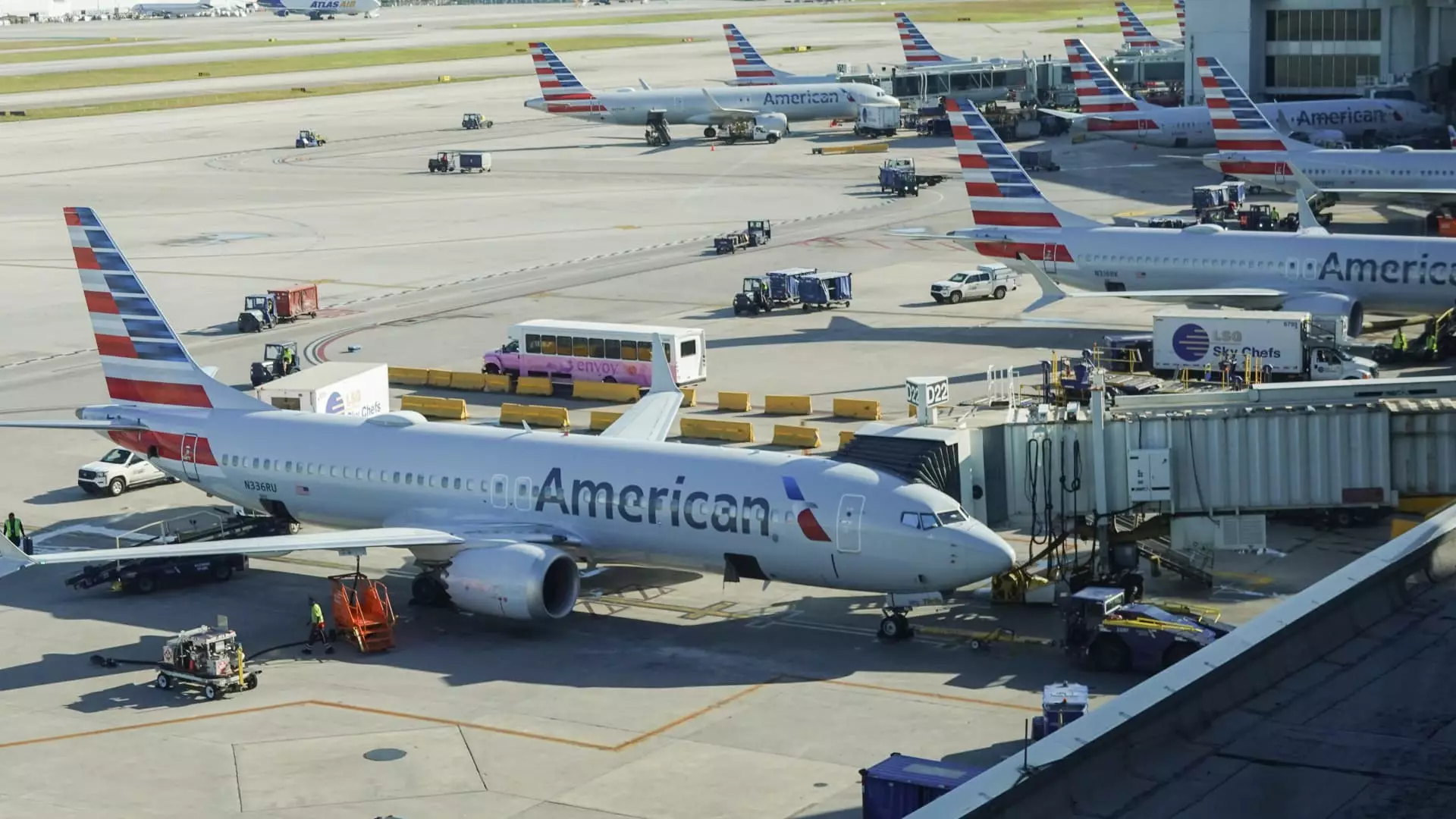On a busy Tuesday morning, American Airlines experienced a temporary halt in its U.S. flights due to a technical malfunction. This occurred at a time when airlines were bracing for an exceptionally high volume of travelers during the holiday season, highlighting the vulnerability of air travel operations to technical issues. By 7:55 a.m. ET, the situation had been resolved, and the ground stop, which lasted less than an hour, was lifted. While this disruption was minor compared to larger operational failures that have plagued the industry before, it raises awareness of the significance of technology in the aviation world.
Understanding the Nature of the Problem
The root cause of this disruption was linked to a vendor-provided platform that manages crucial data regarding aircraft operations, such as weight and balance. This information is essential for safe flight preparations and management. American Airlines publicly acknowledged the problem, apologizing to customers for the unexpected inconvenience. The prompt response from the airline to resolve the issue and resume flights was commendable. However, it also underscored a critical vulnerability in the highly interconnected systems that airlines depend on for daily operations.
The Federal Aviation Administration (FAA) revealed that American Airlines proactively requested the ground stop, a common practice among airlines during critical disruptions. Ground stops are a crucial method employed by airlines to manage air traffic effectively, preventing destination airports from becoming overloaded with incoming flights that cannot be accommodated. While such measures are often triggered by weather events, this incident shines a light on the impact of technical difficulties as well.
American Airlines notably aimed to minimize disruptions during the holiday period, which typically sees increased passenger flows. Notably, the airline had adjusted its Christmas Eve schedule to better align with anticipated demand. Fortunately, there were no cancellations linked to the technical issue, which is a testament to the airline’s operational resilience. However, the growing scrutiny of airlines’ technological frameworks is essential, particularly after previous incidents that severely affected travel.
The aviation industry has witnessed significant technological advancements, yet it remains susceptible to glitches and outages. Recent events, such as the Southwest Airlines operational chaos during the 2022 holiday season and Delta Airlines’ struggle with a cybersecurity incident, further emphasize this fragility. These recurring events stress the need for the airline industry to continually evaluate and invest in its technological infrastructure, ensuring reliability and customer satisfaction.
While the technical issue experienced by American Airlines on that Tuesday morning was relatively brief and resolved quickly, it serves as a reminder of the industry’s ongoing dependence on technology. As air travel continues to grow, both airlines and passengers must remain vigilant about the implications of such technical glitches and the vital role technology plays in maintaining effective operations. Enhanced focus on robustness in technological systems will be essential for securing smooth travel experiences in the future.

